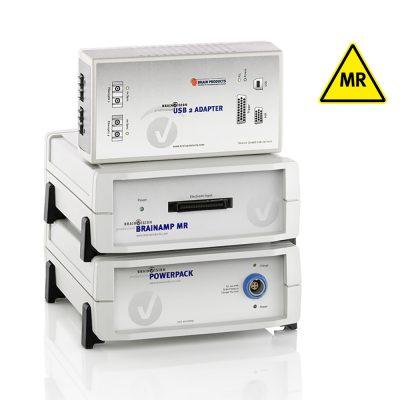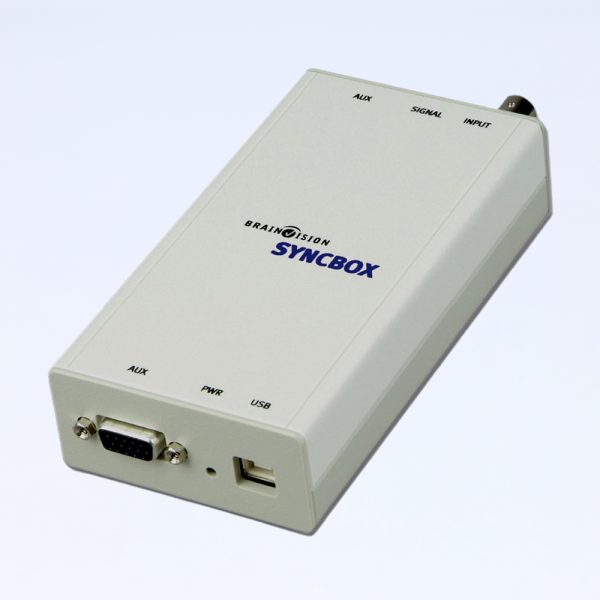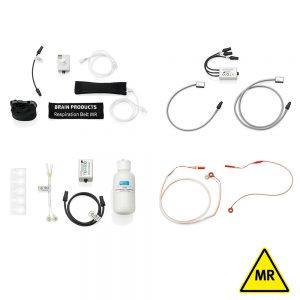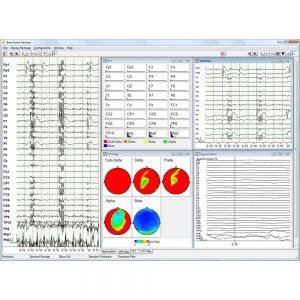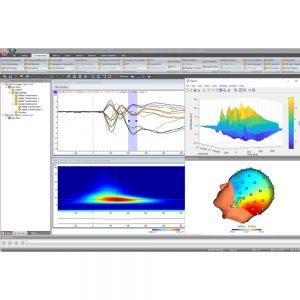BrainCap MR

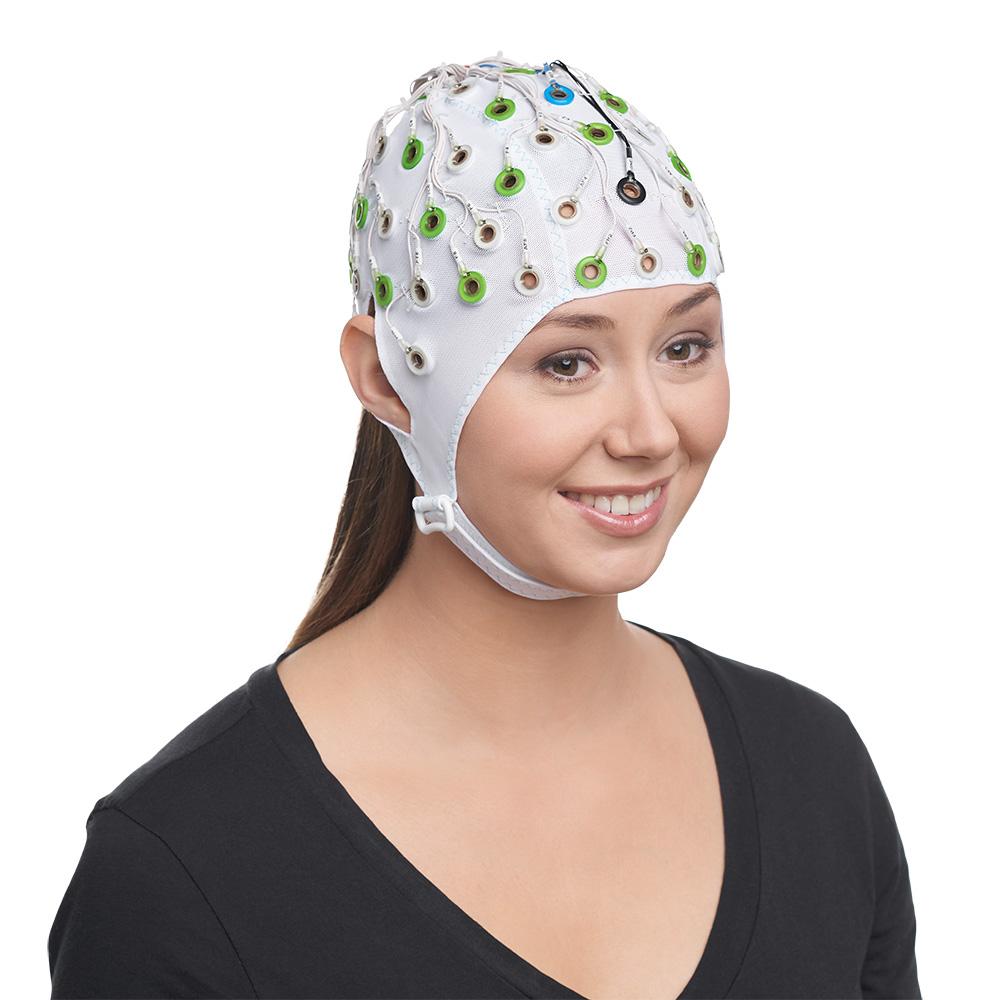
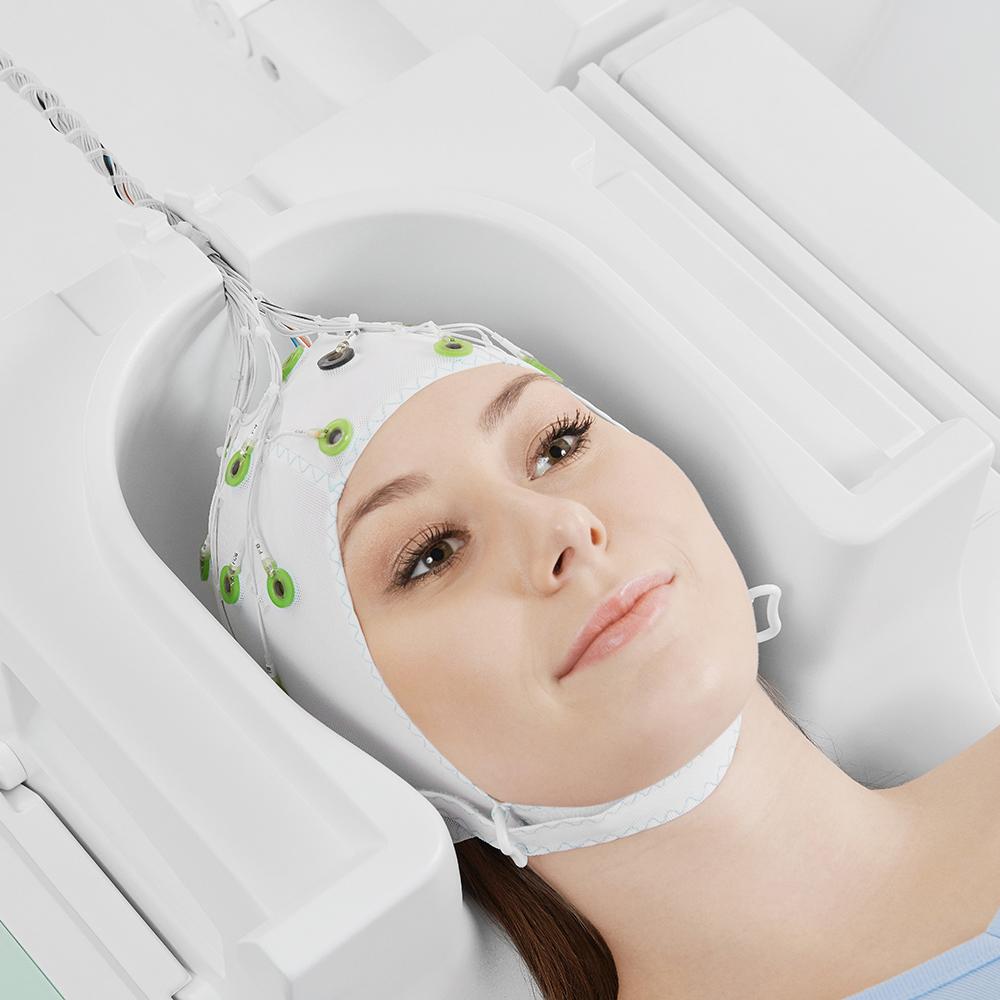
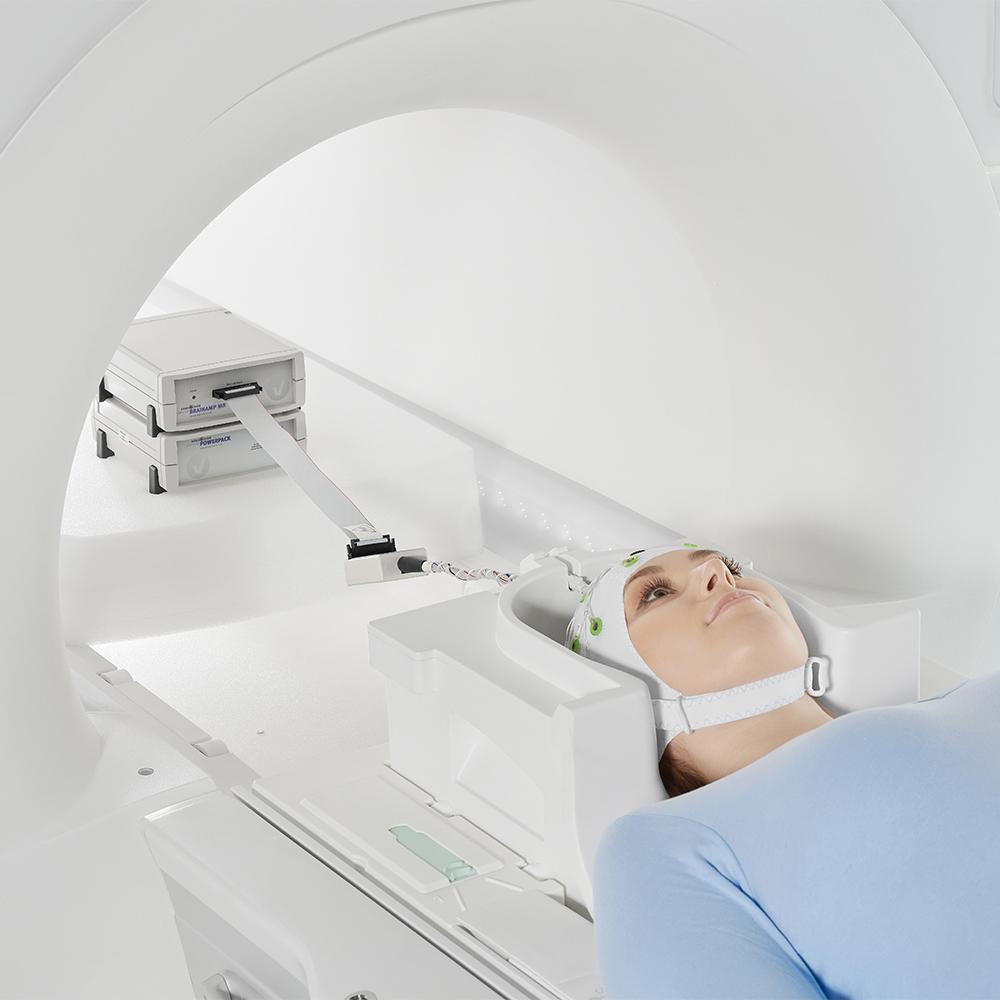
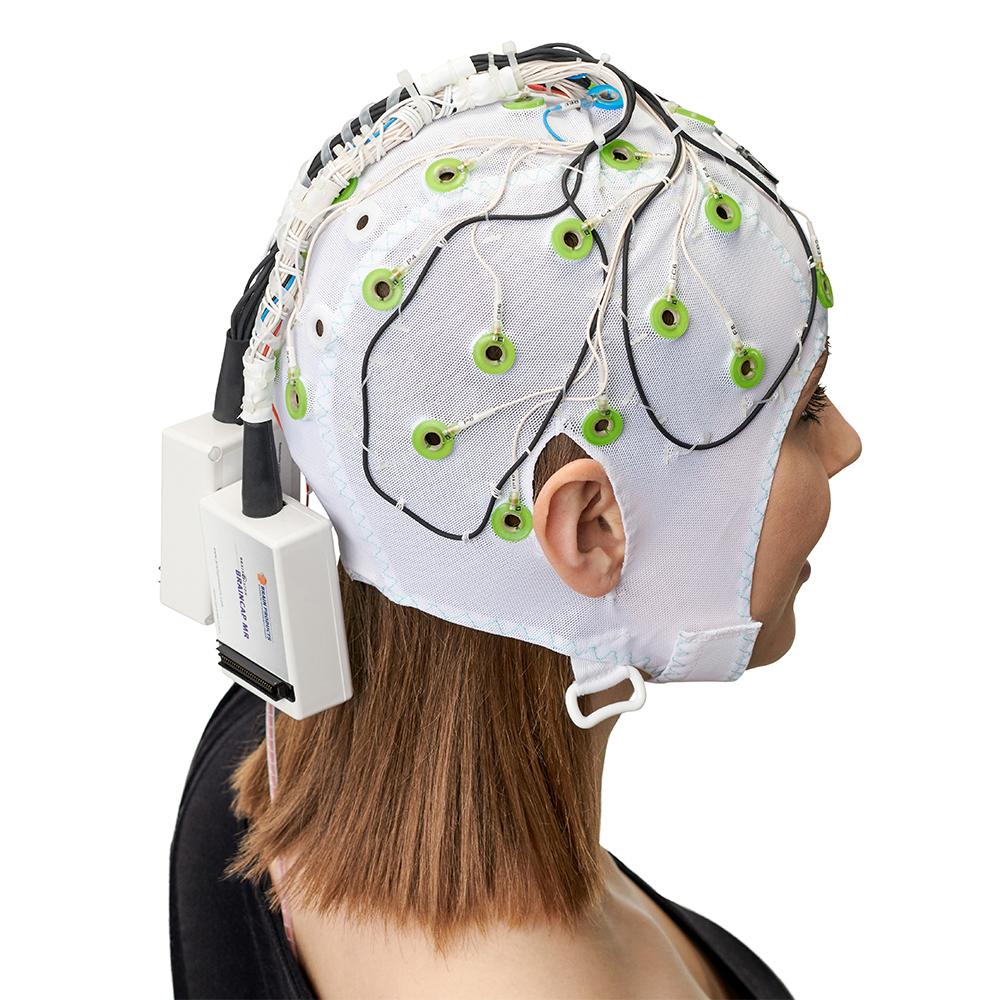
Gel-based passive electrode system for high-quality EEG recordings in the MR environment
Electrodes are fitted with serial current-limiting resistors for maximum safety and data quality
Also available with Carbon Wire Loops for motion artefact correction
Cap sizes range from infants to adults; available channel counts: 32 – 128
General notes
- Max./Min. channel counts depend on amplifier system and cap size.
- Different cap types (SubInion vs. Subtemporal), cap cuts (Caucasian vs. Asian) and cap fabrics (high comfort vs. high precision) are available.
BrainCap MR: Superior electrode system for simultaneous EEG-fMRI
The simultaneous recording of EEG-fMRI data is a well-established technique and our MRI product portfolio is the gold standard for this application. We strive to keep our products up to date to guarantee the highest safety and comfort for the participant as well as outstanding data quality. As such, our BrainCap MR Rev. 3 (from April 2020) has evolved in recent years to keep up with the demands of this dynamic research area.
The BrainCap MR is available for BrainAmp MR amplifiers and can be used in scanners up to 3 T. Its use is subject to our general 3 T EEG-fMRI safety guidelines.
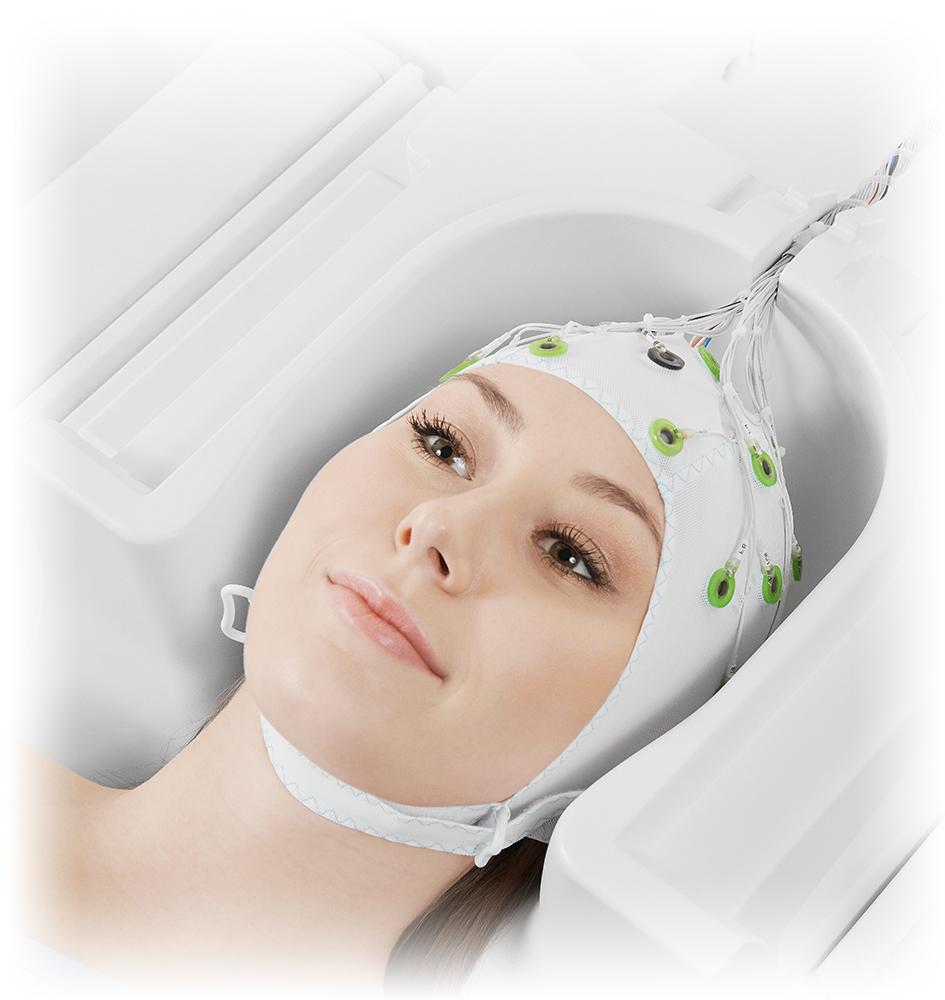 Highest safety standards
Highest safety standards
-
- All electrodes in the BrainCap MR Rev. 3 are fitted with serial current-limiting resistors.
- Resistors are also placed inside the cap connector, for additional current limiting.
- Small gaps are inserted into the electrode rings to avoid induction in closed loops.
- ECG electrodes contain higher resistors than EEG electrodes to compensate for the technical characteristics of longer wires.
- Electrode cables are routed on the outside of the cap and secured to avoid loops and cable movement.
- The drop-down electrodes (e.g. ECG) are sheathed in plastic to avoid direct contact with the skin of the participant.
- Wire length from electrode to the amplifier input is fixed to the minimal required length.
- Cable tree exit point options are available to fit with different MRI head coils.
- Clear MR labelling and safety guidelines are in line with industry standards.
Guaranteed comfort
-
- Flat electrodes guarantee the comfort of the cap when the head is resting on the electrodes in a supine position inside the MR scanner.
- Empty electrode holders are added to caps with fewer than 64 channels to compensate for gaps between the electrodes and more evenly distribute pressure when the head is resting on the electrodes inside the MR scanner.
- A new cap cut has been adopted that encompasses more of the head, cheeks and neck. As a result, these caps fit better on more head shapes, and they rarely slip backwards from frontopolar sites.
Ease of use
-
- Serial number sticker for easy tracking, assembly and layout questions
- Colored electrode holders for easy access/clarification of assembly affiliation (e.g. 10-20, 10-10)
- Name labels on every electrode for easy recognition
What happens to old electrode caps that do not meet the current safety standards?
If you have an older BrainCap MR (before April 2020) there is no urgent need to change your cap. You can continue to use your caps in your current setup as long as you continue to adhere to the safety guidelines. The only difference in the safety guidelines for older caps compared to the new ones is that the sequence limitations are stricter for old caps. This is due to the longer cable tree on older caps (see our MR sequence guidelines). It is worth considering replacing your old BrainCap MR with the latest version if you would like to benefit from the new safety standards and the increased flexibility regarding the MRI sequence limitations.
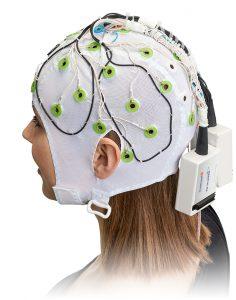 Carbon Wire Loops
Carbon Wire Loops
The BrainCap MR Rev. 3 can be equipped with Carbon Wire Loops (CWL) – see image on the right) for better correction of motion related artefacts. The CWLs are bipolar channels and the measurement requires a BrainAmp ExG MR. Further information can be found in this newsletter article as well as on our webinar channel.
KRIOS Compatibility
KRIOS by Northern Digital Instruments NDI is an infrared camera system including software to digitize individual, real-life electrode positions. In order to work with KRIOS systems the electrodes will be equipped with permanent reflectors in a high quality and precise manner.
| BrainCap MR | Technical specifications |
|---|---|
| Features | |
| Standard cap | Sub-Inion fabric with integrated chin belt, white |
| Fabric | Sizes 52 – 64: High precision fabric Sizes 50 and smaller: High comfort fabric |
| Current limiting resistors | EEG channels: 10 kΩ (5 in electrode and 5 in connection box) ECG channel: 20 kΩ (15 in electrode and 5 in connection box) REF: 15 kΩ (10 in electrode and 5 in connection box) GND: 15 kΩ (10 in electrode and 5 in connection box) |
| Electrode type | Multitrodes for MR with sintered Ag/AgCl sensors |
| Electrode height | 3.8 mm |
| Cable tree length (including connector box) | 31 cm |
| MR safety label | MR conditional |
| Compulsory choices | |
| Sizes (head circumference) | Adult caps: 54, 56, 58, 60, 62, 64 Children caps: 50 (3-4 years), 52 (5-10 years), 54 (11-14 years) Infant caps: 36 (newborn), 38, 40 (3 months), 42, 44 (7 month), 46, 48 (2 years) |
| Number of channels | 32 (for all sizes) 64 (for size 42 and larger) 96, 128 (for size 52 and larger) |
| Cuts | Caucasian or Asian |
| Cable tree exit point | CPz (standard) or FFCz (to fit Siemens 64 channel head coil) |
| Additional options | |
| Carbon wire loops | 4 bipolar loops at left-frontal, right-frontal, left-parietal, and right parietal locations |
| Krios compatibility | Permanent reflectors fitted to each electrode for compatibility with KRIOS by Northern Digital Instruments |
| Miscellaneous | |
| Suitable for use in MR scanner room | Yes, up to 3 T. MR conditional, i.e. guidelines must be observed |
| Medical device | No |
| CE marking | The Brain Products GmbH confirms the RoHS compliance of this product according to Directive 2011/65/EU of the European Parliament and the Council of 8 June 2011 on the restriction of the use of certain hazardous substances in electrical and electronic equipment (recast published in the Official Journal of the European Union on 1 July 2011) as well as all its amendments up to and including the Commission delegated directive (EU) 2015/863 of 31 March 2015 (published in the 0fficial Journal of the European Union on 4 June 2015). The CE marking is based on the RoHS compliance. |
Recommended add-ons

